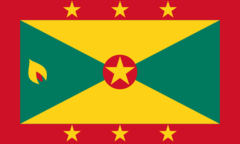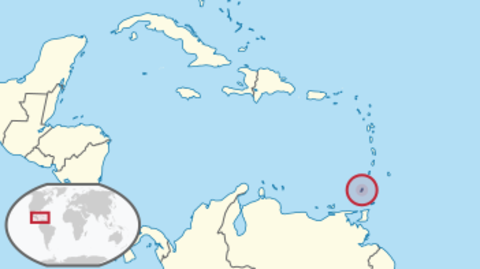 A tax haven that has fallen from its previous prime and glory, Grenada today is a husk of what it once was: a free-for-all for tax evaders and money launderers.
A tax haven that has fallen from its previous prime and glory, Grenada today is a husk of what it once was: a free-for-all for tax evaders and money launderers.
Grenada is a former French (1649 – 1763) and British (1763 – 1974) colony.
The young nation started its independence with a series of coups which in 1983 culminated in the US invading Grenada together with the Caribbean Peace Force (CPF), largely to prevent it from becoming another communist, USSR-puppet state like Cuba.
The CPF was a peacekeeping force from 1983 to 1985, formed by troops from several Caribbean nations and territories.
The invasion lasted from the 25th of October to the 15th of December 1983, whereafter most of the US troops left and the CPF stayed behind to ensure stability.
Since then, Grenada has enjoyed relative political stability and a relatively stable economy has been established. The economy consists of spice production, ecotourism, tourism, and services. St. George’s University is a growing educational institute in the Caribbean, which recently saw a 750 million USD investment from Asian and Canadian investors.
Geography and Demography

Map from Wikipedia.
| Full Name: | Grenada |
| Official language(s): | English |
| Other major languages: | English and French Creoles |
| Type of government: | Parliamentary democracy |
| Legal system: | Common law based on English model |
| Area: | 348.5 km² |
| Timezone: | UTC-4 |
| Population: | 110,000 |
| GDP per capita: | 12,000 USD |
| Currency: | East Caribbean Dollar (XCD), pegged at 2.70 XCD = 1 USD |
Incorporation and Business
Reputation
Falling somewhere between moderately irreputable and unknown, Grenada is comparable to Dominica and Samoa, albeit with the bitter aftertaste that comes with being on the receiving end of a military invasion to restore stability. Many years have passed and Grenada today is far more reputable than it once was, although partly because its financial services sector has diminished.
In June 2015, Grenada was added to a list of 30 blacklisted tax haven by the EU.
Grenada had previously been blacklisted by the FATF for being uncooperative.
Nonetheless, OECD has concluded that Grenada is Largely Compliant with current international standards. Its main complaint is that although legislation is in place, enforcement is extremely lacking.
Grenada has almost completely vanished, having gone from almost 4,000 IBCs in 2002 to under 66 remaining in 2014 (although that was an increase of 4 IBCs from the 62 the previous year). It is not entirely unlikely that the upkeep of the offshore regime costs more to run than the revenue it generates and similar to for example Niue, Grenada might in the future shut down its international tax sector completely.
Regulator
They say you cannot judge a book by its covers, but I often find it fair to judge a jurisdiction’s financial services authority by its website.
GARFIN – the Grenada Authority for the Regulation of Financial Insitutions – is sporting a distinct early-2000s style design, coupled with broken links, “Under Construction” notices, and an absence of updates for years.
Interacting with Garfin is difficult. This is a grossly underfunded authority that’s supposed to look after an industry that brings in a significant portion of the country’s revenue.
General
It’s a rather cookie-cutter jurisdiction with an IBC act enacted in 1990s based on the old BVI model. Significant changes were made in 2002 in a hurried effort to reach post-9/11 standards, the most noticeable change being that bearer shares were no longer permitted.
Incorporation costs are relatively low, often costing less than most other jurisdictions. Costs vary greatly, with local law firms typically only charging 800 – 1,200 USD but more international firms charge a tremendous mark-up.
IBC
It’s the usual deal:
- Minimum one director. Can be corporate.
- Minimum one shareholder. Can be corporated.
- Usually 50,000 USD share capital of which 1 USD must be paid up.
- Registered office in Grenada required.
Time to incorporate is one or two business days from submission of all necessary documents.
Taxation
IBCs are tax exempt for 20 years from incorporation.
Record Keeping
Required but there are practically no controls in place.
Public Records
None for offshore companies.
Trust
A trust law exists but is not being used.
Banking
Grenadian banking is like most of the Caribbean: limited services, expensive for international clients, and typically more hassle than they are worth.
Grenada was for a while on a FATF blacklist but it was removed fairly quickly, after Grenada cleaned up its thitherto almost lawless banking sector.
Today, there are no banks in Grenada licensed under the offshore banking licenses that do exist (and some old-looking websites promise to still sell). The government is instead reassessing the situation. It will likely be scrapped.
Open a Bank Account in Grenada
While it is possible to open a bank account in Grenada, doing so offers no clear advantage over most other jurisdictions.
Grenadian IBCs (all 66 of them) usually don’t bank or bank elsewhere.
Banking Secrecy
The old ironclad banking secrecy that Grenada once had and its barely-regulated licensees used to refuse sharing information is long gone.
Today, it’s a relatively weak banking secrecy law.
Banks in Grenada
What used to be around 50 banks have now shrunk to five banks:
- First Caribbean International Bank
- Grenada Co-Operative Bank
- RBTT Republic Bank
- Republic Bank
- Scotiabank
Living in Grenada
Grenada is relatively well-off, stable, and well-developed. It has risen as a strong economy from the hardships following its independence. It is in tremendous debt but has performed generally well financially.
The economy is fairly diverse but extremely sensitive to the outside.
Life in Grenada can be very enjoyable, but most foreigners keep all but spending money in foreign currencies, and in foreign banks. Crime is relatively low.
The Maurice Bishop International Airport is quite well-connected to Europe, USA, Canada, and even other Caribbean islands.
Citizenship
Grenada operates a Citizenship by Investment programme.
Starting at 200,000 USD, the Grenada CBI programme offers a citizenship with visa-free travel to over 120 jurisdiction, including the Schengen area as of 2016, and a moderately good reputation.
The programme is still very young but promising.
Taxation
Grenada operates a semi-territorial taxation system for natural persons, where residents are only taxed on locally-sourced income.
There is no capital gains tax.
Final words
A former highly secretive tax haven with dozens of money laundering entities “regulated” offshore banks and thousands IBCs, it is now left with 66 IBCs and not a single offshore bank.
For citizenship and residence, it can be a jurisdiction worth comparing to for example Dominica, Saint Kitts and Nevis, and Antigua and Barbuda.
See also
- OECD Peer Review (also has a list of TIEA and DTA)
- FATF documents
- Financial Secrecy Index
Be the first to comment on "Jurisdiction Spotlight: Grenada"